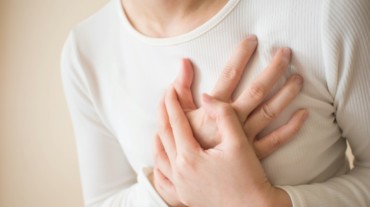
When it comes to physiology, there is no doubt men and women are different. This also means that when it comes to certain diseases, risks and symptoms also vary. The biggest example of this is cardiac diseases, for which women tend to have unique risk factors like PCOS and endometriosis.
But that’s not all! Studies also suggest that women are more likely to succumb to heart attack. In fact, a new study published in the journal Heart Rhythm suggests that women are at a higher risk to suffer sudden death due to cardiac arrest during nighttime hours.
The study, led by the Center for Cardiac Arrest Prevention in the Smidt Heart Institute (US) has found for the first time that during nighttime hours, women are more likely than men to suffer sudden death due to cardiac arrest.
“Dying suddenly during nighttime hours is a perplexing and devastating phenomenon,” said Sumeet Chugh, MD, senior author of the study and director of the Center for Cardiac Arrest Prevention. “We were surprised to discover that being female is an independent predictor of these events,” added Chugh.
Medical experts are mystified, Chugh said, because, during these late hours, most patients are in a resting state, with reduced metabolism, heart rate, and blood pressure.
Sudden cardiac arrest-also called sudden cardiac death-is an electrical disturbance of the heart rhythm that causes the heart to stop beating. People often confuse sudden cardiac arrest with a heart attack.
However, a heart attack is caused by a buildup of cholesterol plaque that creates a blockage in the coronary arteries. And unlike a heart attack, when most have symptoms, sudden cardiac death can present in the absence of warning signs.
Another major difference: Most people survive heart attacks, with only 10% of patients surviving out-of-hospital cardiac arrest. Of the approximately 350,000 people affected by the condition each year in the U.S., roughly 17% to 41% of cases occur during the nighttime hours of 10 pm to 6 am.
In the study, Chugh and his team of investigators looked at records of 4,126 patients, with 3,208 daytime cases of sudden cardiac arrest and 918 nighttime cases. Compared with daytime cases, patients who suffered from nighttime cardiac arrest were more likely to be female.
While further work is needed, the researchers suggest there may be a respiratory component causing this increased risk at night for women.
Select Topics of your interest and let us customize your feed.
PERSONALISE NOW
“The prevalence of chronic obstructive lung disease and asthma were found to be significantly higher in sudden cardiac arrest cases at night compared with daytime cases, regardless of gender,” said Chugh.
“Brain-affecting medications, some of which have the potential to suppress breathing, were also found to have a significantly greater usage in nighttime compared to daytime cardiac arrest,” added Chugh.
Based on these findings, this research report suggested that prescribing physicians may wish to be cautious when recommending brain-affecting medications, for example, sedatives and drugs prescribed for pain and depression management, to high-risk patients, especially women.
“This important research may better guide physicians and the broader medical community to making more sound, science-backed recommendations in treating this difficult condition,” said Christine Albert, MD, MPH, chair of the Department of Cardiology in the Smidt Heart Institute and the Lee and Harold Kapelovitz Distringuished Chair in Cardiology.
“It is also a necessary continuation of sex-based research defining much of the field of cardiology,” concluded Albert.
Get Latest Updates on Health News